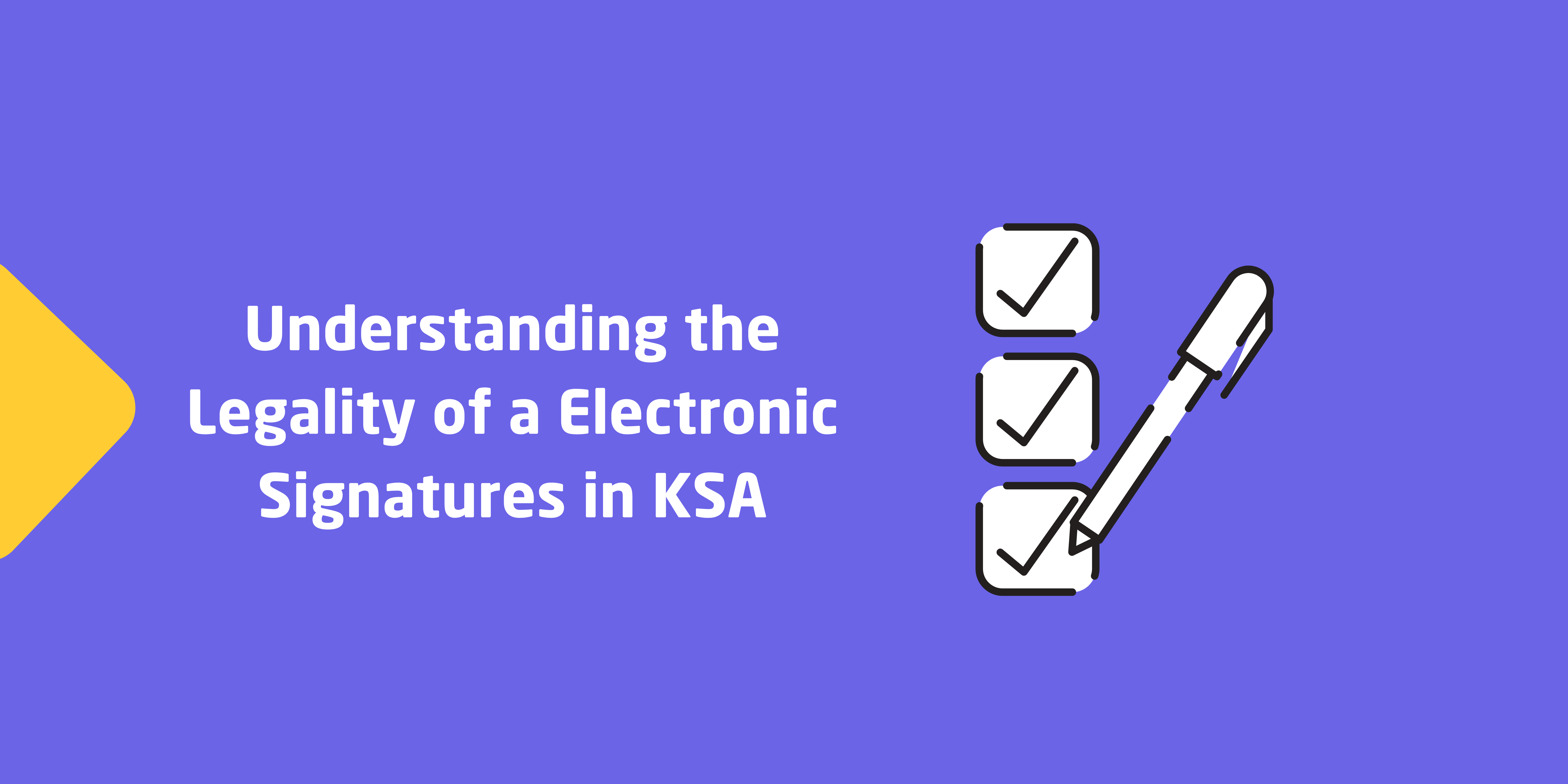
Saudi’s #1 Arabic E-Signature Solution
Empowering Saudi businesses with effortless digital signatures—secure, compliant, and designed for seamless use in both Arabic and English.
Start Free TrialThe Legality of a Electronic Signatures in KSA
Saudi Arabia’s eSignature laws stem from the passing of the Electronic Transaction Law in 2007.
What does this mean for businesses? It means eSignatures are legally valid and admissible in the court of law.
So, let’s explore the ins and outs of this law to now the legality of a electronic signature in KSA as well as the basics of electronic signature regulations.
The Electronic Transactions Law
According to the Electronic Transaction Law: a handwritten signature is not necessarily required for a valid contract.
Contracts are recognized as legally binding if two competent parties reach an agreement, whether they agree verbally, electronically, or in a physical paper document.
Article 5 of the Electronic Transactions Law states contracts cannot be denied enforceability for merely being electronic. However, there may be situations where individuals parties may need to present additional evidence in court.
It may be difficult to prove electronic contracts if they were only created via email.
When e-signatures are combined with tamper sealing, strong authentication, world-class security and an audit trail, they provide stronger court admissible evidence than a simple wet signature or scanned image of a signature on a PDF.
Learn more about the Electronic signature .
Considerations for enforceability
The following are the requirements to ensure that electronically signed documents have legal effect, validity and enforceability:
-
- The signer’s identity is verified.
- The document is sealed with a valid digital certificate.
- The system or service used for signing must be secure, actively maintained, and free of technical defects.
- The signature procedures and confidentiality of the data are managed in accordance with the technical conditions stipulated in the digital certification procedures issued by the National Centre for Digital Certification.
- The signer has complied with all conditions stipulated in the digital certification procedures issued by the Centre.
Electronic documents that satisfy the above requirements must be admitted as presumptive evidence in legal proceedings.
However, if electronic transactions do not satisfy the above requirements, the regulation prescribes the following methods to assess their reliability to qualify as evidence:
-
- The method of creating, storing or communicating an electronic record and the possibility of tampering therewith;
- The method of maintaining the integrity of information; and
- The method of identifying the originator.
Types of documents that can be signed electronically
Many common business documents can be signed electronically, including:
-
- Offer letters, new hire paperwork and employee policy updates
- Non-disclosure agreements, statements of work
- Sales contracts
- Purchase orders and master service agreements
- Account opening paperwork
- Insurance policy applications and claims
- Student services
- Patient intake forms

Saudi’s #1 Arabic E-Signature Solution
Empowering Saudi businesses with effortless digital signatures—secure, compliant, and designed for seamless use in both Arabic and English.
Start Free TrialTypes of documents that generally require a traditional signature
The following types of documents are generally excluded from the use of Electronic Signatures:
-
- Property title deed transfer
- Granting a power of attorney
- Signing the Articles of Association of a company with limited liability and any amendments thereof
Start working with electronic contracts today
Now after Knowing the Legality of a Electronic Signatures in KSA Are you Curious about how digital signatures can help your business?
Getting started with Signit is incredibly easy. We even offer a free trial. Sign up today to get started.
Share Article



